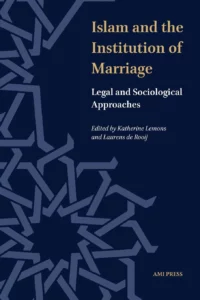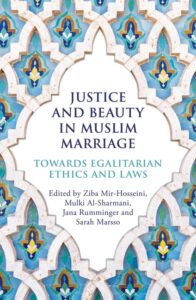
The Institution of Marriage in Islam
The pillars of a legitimate marriage in Islam between two adult males and females are two: clear consent of the two parties themselves for marriage and binding an agreement so that they become husband and wife. ‘Non-verbal conventional marriage’ is a legitimate marriage because both pillars of marriage were observed in it. A written marriage contract and especially its submission in a legal center for marriage is closer to caution for a time of frequent disagreement. The Western style of partnership ‘cohabitation’ is not necessarily equivalent to non-verbal conventional marriage.


